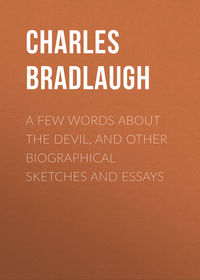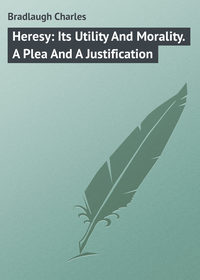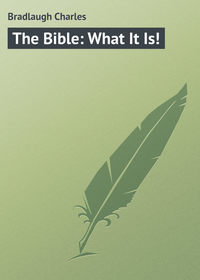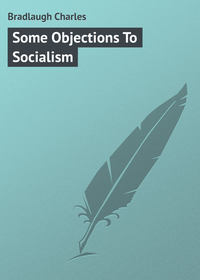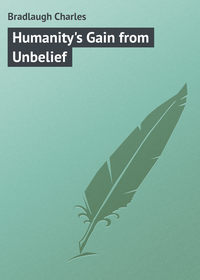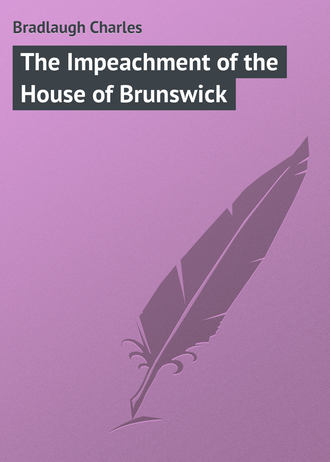
The Impeachment of the House of Brunswick
Her Majesty's eldest son, Albert Edward, Prince of Wales, Duke of Saxony, Cornwall, and Rothesay, and Earl of Dublin, has earned already so wide a fame that notice here is almost needless. As a writer, his letters – a few of which have been published by the kind permission of Sir Charles Mordaunt – illustrate the grasp of mind peculiar to the family, and mark in strong relief the nobility of character of the Royal author. As a military chieftain, the Autumn Manoeuvres of 1871 demonstrated the tact and speed he could display in a strategic movement of masterly retreat. As an investigator of social problems, he has surpassed the Lords Townshend and Shaftesbury, and at Mabille and in London has, by experience, entitled himself to speak with authority. As a pigeon-shooter, he can only be judged by comparison with the respectable ex-bushranger now claiming the Tichborne estates. Here, it is true, the latter is a man of more weight. The Prince of Wales receives £40,000 a year, and we give his wife £10,000 a year as a slight acknowledgment for the position she has to occupy as Princess of Wales. With the history of the wives of the two last Princes of Wales to guide them, it is almost wonderful that the advisers of the Princess did not insist on a much higher premium against the risks of the position. When his Royal Highness came of age, he found accumulations of the Duchy of Cornwall approaching a million sterling, which, invested in Consols, would bring him in at least a further £40,000 per annum. His Royal Highness also has the income of the Duchy of Cornwall, amounting net to about £75,000 a year. In addition to this, the Prince of Wales is entitled to military salary as Colonel of the Rifle Brigade and 10th Hussars. Last year – conscious that it is unfair to expect a Prince to live upon £153,000 a year – £7,600 were voted by Parliament for the repair of the house in which he sometimes resides when in London.
A few years ago his Royal Highness was in Paris, and certain scurrilous foreign prints pretended that on the Boulevard des Italiens, in the face of France, he had forgotten that one day he would seek to be King of England. It is written, "In vino Veritas." and if the proverb hold, the Prince is more than half his time a man remarkable for his truthfulness. Some time later, the Royal Leamington Chronicle, which, in his mercy, the Prince of Wales never prosecuted, coupled his reputation with infamy. Later, his Royal Highness was ill, and the nation wept. Then came recovery and Thanksgiving at St. Paul's.
"So when the devil was sick, The devil a saint would be; When the devil got well again, The devil a saint was he."The Prince of Wales has since been to Paris, and, according to La Liberte, has honored Mabille with his Royal presence.
Her Majesty's second son is Alfred Ernest, Duke of Edinburgh. His Royal Highness, when serving on board the Galatea, had leave to go on shore at Marseilles. Journeying to Paris, he overstayed his leave, refused to return when summoned, and stayed there, so Paris journals said, till his debts were thousands. Any other officer in the navy would have been cashiered; his Royal Highness has since been promoted. The Duke of Edinburgh visited our Colonies, and the nation voted about £3,500 for presents made by the Prince. The presents the Prince received were, of course, his own, and the vote enabled the Duke to do justice to the generous sentiments of his family. The Colonists pretended at the time that some of the presents were not paid for by the Duke of Edinburgh; nay, they went so far as to allege that some of the Duke's debts had to be discharged by the Colonist Reception Committee. Representing the honor of England, his Royal Highness earned himself a fame and a name by the associates he chose. In visiting India, a special sum of, we believe, £10,000 was taken from the Indian revenues and handed to the Duke, so that an English Prince might be liberal in his gifts to Indians at their own cost. The Duke of Edinburgh has £25,000 a year. Five years ago he borrowed £450 from the pay-chest of the Galatea. I have no means of knowing whether it has since been paid back; all I can affirm is, that the country made up the deficient sum in the pay-chest without a word from any M. P. Had the borrower been a pay-sergeant, he would have been sent to a District Military Prison; if a commissioned officer, other than a Royal one, he would have been dismissed the service. The difference between the Prince of Wales and the Duke of Edinburgh is this: in the first case, the virtues of the Prince equal his intelligence; in the second case, the intelligence of the Duke is more developed than are his virtues.
In the case of Broadwood vs. the Duke of St. Albans, both the Royal brothers were permitted to guard a pleasant incognito. The Judge who allowed this concealment was soon afterwards created a Peer of the Realm.
Our army and navy, without reckoning the Indian Establishment, cost more to-day, by about £9,000,000 a year, than when her Majesty ascended the throne. Her Majesty's cousin, George William Frederick, Duke of Cambridge, is Commander-in-Chief of the Army, and for this service receives £4,432 per annum. His Royal Highness also receives the sum of £12,000 in consequence of his being a cousin of the Queen. His Royal Highness is also Field-Marshal, and Colonel of four distinct regiments, for which he gets more than £5,000 annually. Naturally, in the Duke is found embodied the whole military talent of the Royal Family. His great-uncle, the Duke of Cumberland, carved "Klosterseven" on the Brunswick monuments. Frederick Duke of York, the uncle of the Duke of Cambridge, recalled from the field of battle, that he might wear in peace at home the laurels he had won abroad, added "Clarke" and "Tonyn" as names to vie with Cressy or Waterloo. The present Duke of Cambridge was, when Prince George, stationed in Yorkshire, in the famous "plug plot" times, and his valiancy then threatened most lustily what he would do against the factory "turnouts," poor starved wretches clamoring for bread. In the army, the normal schoolmasters can tell how this brave Brunswicker rendered education difficult, and drove out, one by one, many of the best teachers. Soldiers who think too much, make bad machines. It was the father of the present Duke of Cambridge who publicly expressed his disbelief, in 1844 – 5, of the failure of the potato crop in Ireland, "because he had always found the potatoes at his own table very good!"
For many years her Majesty's most constant attendant has been a Scotsman, John Brown. This person so seldom leaves her Majesty that it is said that some years since the Queen insisted on his presence when diplomatic communications were made to her Majesty; and that, when escorting the Queen to Camden House, on a visit to the ex-Emperor Napoleon, Mr. Brown offered her his arm from the carriage to the door. Afterwards, when an idiotic small boy – Armed with a broken pistol, loaded with red flannel, and without gunpowder – made a sham attack on her Majesty, Mr. Brown courageously rushed to the Queen's aid, and has since received a medal to mark his valor.
For many years her Majesty has taken but little part in the show ceremonials of State. Parliament is usually opened and closed by commission – a robe on an empty throne, and a speech read by deputy, satisfying the Sovereign's loyal subjects. It is, however, the fact that in real State policy her interference has been most mischievous, and this especially where it affected her Prusso-German relatives.' In the case of Denmark attacked by Prussia and Austria, and in the case of the Franco-Prussian War, English Court influences have most indecently affected our foreign relations.
Her Majesty is now enormously rich, and – as she is like her Royal grandmother – grows richer daily. She is also generous, Parliament annually voting her moneys to enable her to be so without touching her own purse.
It is charged against me that I have unfairly touched private character. In no instance have I done so, except as I have found the conduct of the individuals attacked affecting the honor and welfare of the nation. My sayings and writings are denounced in many of the journals, and in the House of Lords, as seditious, and even treasonable. My answer is, that, fortunately, Hardy, Tooke, and Thelwall heard "Not Guilty" given as the shield against a criticism which dared to experiment on persecution. In case of need, I rely on a like deliverance. I do not pretend hereto have pleaded for Republicanism; I have only pleaded against the White Horse of Hanover. I admire the German intellect, training the world to think. I loathe these small German breast-bestarred wanderers, whose only merit is their loving hatred of one another. In their own land they vegetate and wither unnoticed; here we pay them highly to marry and perpetuate a pauper prince-race. If they do nothing, they are "good." If they do ill, loyalty gilds the vice till it looks like virtue.



